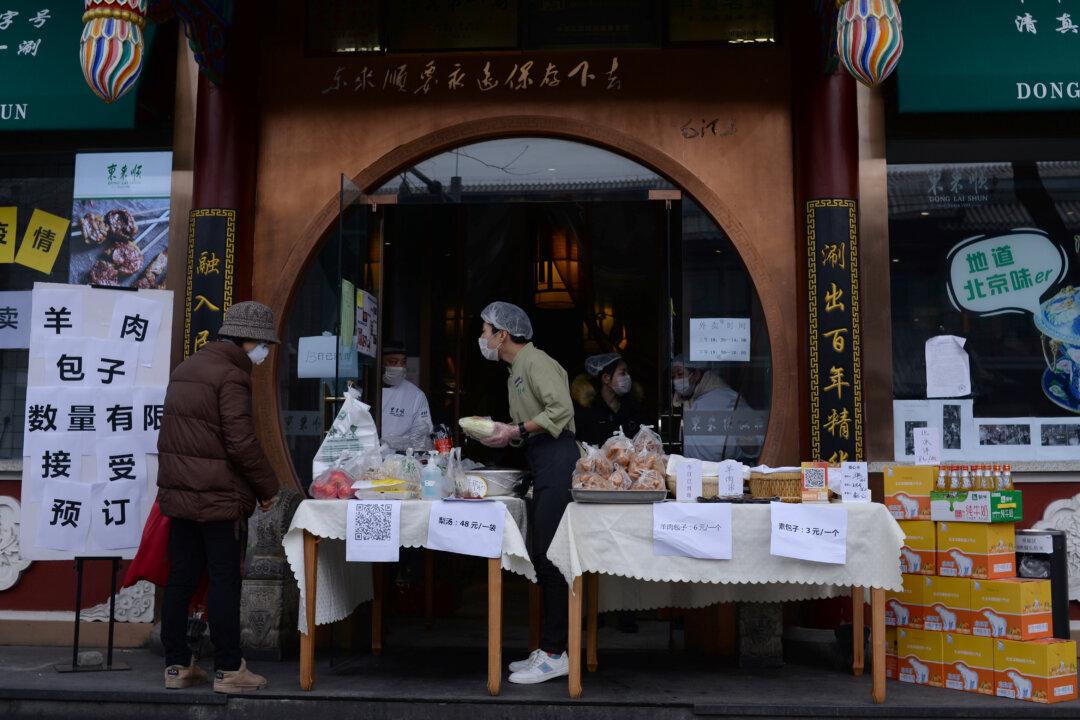BEIJING—Wang Chuanchao shuttered his restaurant in central Beijing three weeks ago as the scare over the coronavirus outbreak in country kept customers away and now he’s reduced to selling off vegetables on the street outside to cut losses.
Anticipating packed tables at his 125-seater restaurant over the Lunar New Year, Wang says he bought in 300,000 yuan (nearly $43,000) worth of ingredients, ranging from celery to ox tripe. Now, he has to find ways to pay the rent, and his staff, so he can re-open for business once his customers find the courage to come back.





